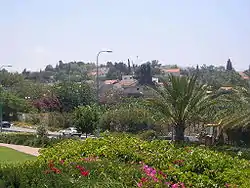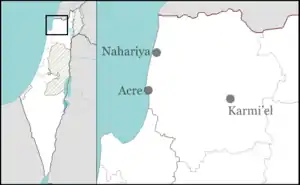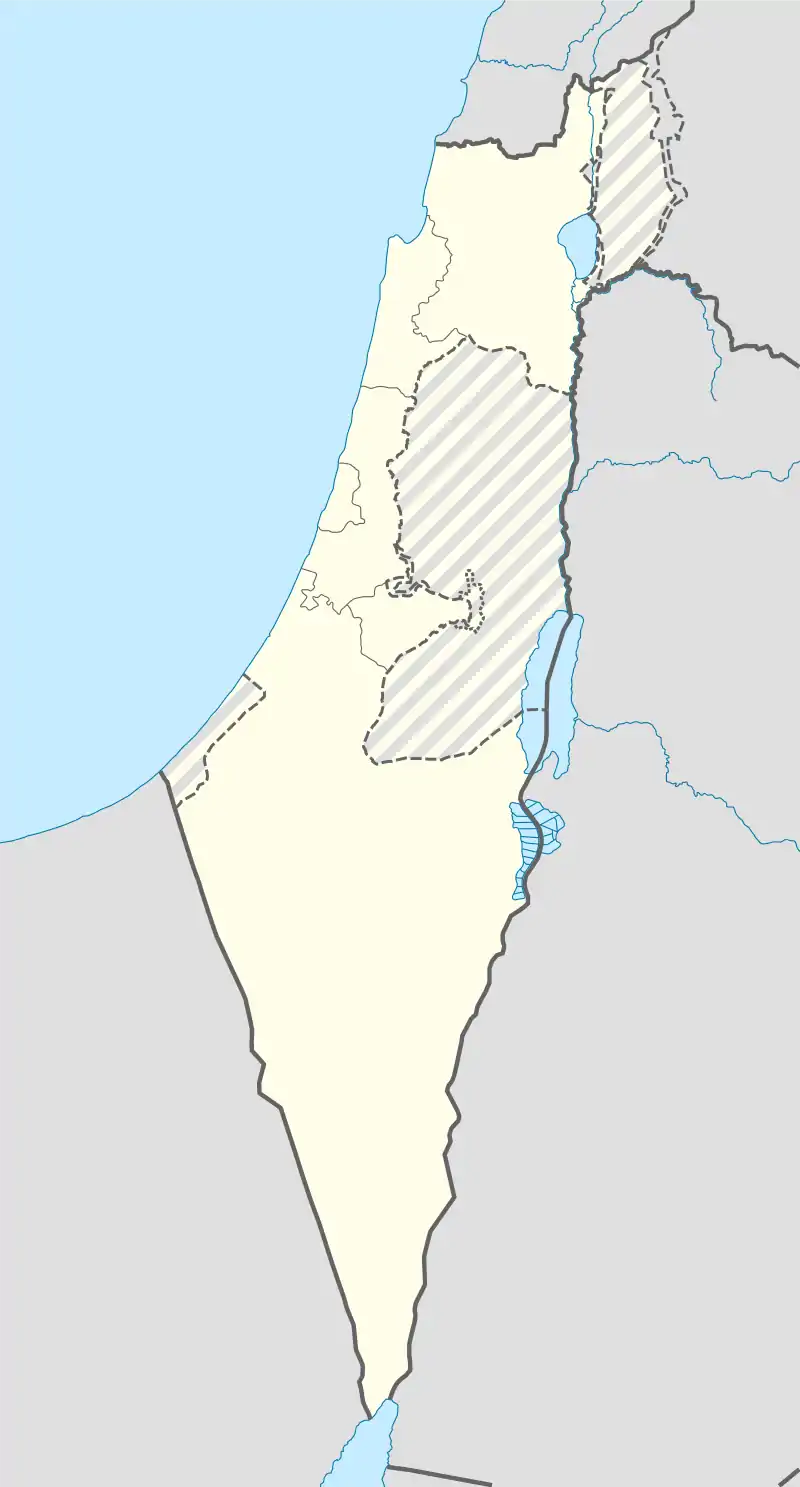Shlomi, Israel
Shlomi (Hebrew: שְׁלוֹמִי) is a town in the Northern District of Israel. In 2019 it had a population of 6,511.
Shlomi
שְׁלוֹמִי | |
|---|---|
| Hebrew transcription(s) | |
| • ISO 259 | Šlomi |
| • Also spelled | Shelomi (official) |
 | |
 Shlomi  Shlomi | |
| Coordinates: 33°4′28.25″N 35°8′41.48″E | |
| Country | |
| District | Northern |
| Founded | 1950 |
| Government | |
| • Head of Municipality | Gabi Naaman |
| Area | |
| • Total | 5,868 dunams (5.868 km2 or 2.266 sq mi) |
| Population (2019)[1] | |
| • Total | 6,511 |
| • Density | 1,100/km2 (2,900/sq mi) |
History
Shlomi was founded as a development town in 1950 by Jewish immigrants from Tunisia and Morocco on the ruins of an Arab village of al-Bassa, which had been destroyed during the 1948 Arab–Israeli War.[2][3][4] It was named after a leader from the tribe of Asher, mentioned in the Bible (Num 34:27).
Shlomi is supported in the main by the UJIA (United Jewish Israel Appeal), and by the British Jewish youth group, AJ6.
Shlomi has been the target of Hezbollah Katyusha rocket attacks on 11 May 2005, Israel's Independence Day, and again on Israel's Independence Day in 2006.
It was again the target of rocket attacks on 12 July 2006, a diversion to facilitate the killing of three soldiers and kidnapping two others, which sparked the 2006 Lebanon War.
Archaeology
On the road between Shlomi and Kibbutz Hanita, Israeli archaeologists found the remains of Pi Metzuba, a prosperous Christian town mentioned in the Jerusalem Talmud. The town was destroyed in the early seventh century when Persia invaded the region as part of its broader conflict with the Byzantine Empire.[5]
References
- "Population in the Localities 2019" (XLS). Israel Central Bureau of Statistics. Retrieved 16 August 2020.
- Benvenisti, Meron (2002). Sacred landscape: the buried history of the Holy Land since 1948. University of California Press. p. 193. ISBN 978-0-520-23422-2.
- Morris, Benny (2004). The Birth of the Palestinian Refugee Problem Revisited. Cambridge University Press. p. 253. ISBN 978-0-521-00967-6.
- "History of Shlomi".
- Christian town destroyed by Persians found in north, Haaretz
.svg.png.webp)